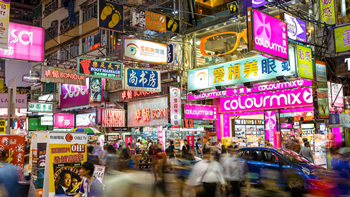In April the PRC Advertising Law was amended for the first time since 1994 and will take effect in September 2015. It is very strict and even stricter on medical services. Advertising rules also apply to email and text messages, and the Internet.
The updated advertising law clarifies the definition of false advertising, regulates online advertisements, and introduces tough new rules on advertising endorsers. It is particularly tough on the advertising of healthcare and medical services.
The law broadens the definition of false advertising by expressly prohibiting both false and misleading advertising content.
There is a new prohibition on sending advertisements to home addresses or in electronic format to computers or mobile devices without the recipient’s consent or request.
The law expressly applies to internet advertisements. Such advertisements must not interfere with people’s normal usage of the Internet-so advertisements in the form of pop-up windows must be capable of being closed by one single click.
All advertisements sent in electronic format must display the sender’s real identity and contact details, together with information about how the recipient can unsubscribe from further advertisements.
Celebrity endorsement in advertisements may mislead consumers. So celebrities or other endorsers endorsing any product or service may be held liable if they know, or ought to know that the advertisement amounts to false advertising.
Medical products and services must not cite recommendations or testimonials by medical or research institutions or celebrities or by patients – and it may be a matter of interpretation by the authorities as to how far this includes medical treatment and/or medical tourism services.
Radio stations, TV stations, newspapers, audio publishers, and Internet information service providers may not publish health related advertisements under the guise of giving free health information.
There are many penalties for those who break the rules and specific ones for medical institutions.
Any medical institution whose false advertisement is considered to be a severe legal violation may be subject to an administrative penalty such as a fine or even imprisonment .The advertising regulator will refer culprits to the relevant health administration that can put limits on what the business can in future do on diagnosis or treatment. For serious cases, the law allows for the suspension or removal of the practicing license of the medical institution. The dual penalty mechanism reflects the government’s determination to crack down on misleading health advertising.
It is advisable for businesses to review their advertising practices in China to ensure compliance with the new law, especially in light of the potential surge of regulatory enforcement and consumer complaints.
The law sends out a signal that China is keen to strengthen consumer protection by clamping down on undesirable advertising activities.
Advertising in China is regulated by the Shanghai Administration for Industry & Commerce – better known as AIC.The new law provides that any entity or individual may report suspected false advertising activities to the AIC, which will be required under the law to handle the case and notify both parties within 7 working days. In addition, the China Consumers’ Association and other consumer protection organizations will also be empowered under the law to monitor false advertising activities and report findings to the AIC.








 ©2024 All rights reserved LaingBuisson
©2024 All rights reserved LaingBuisson 


